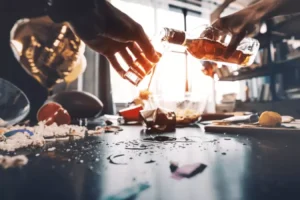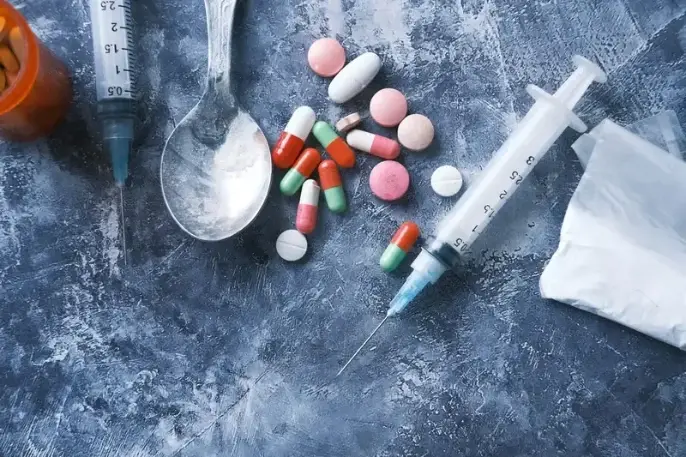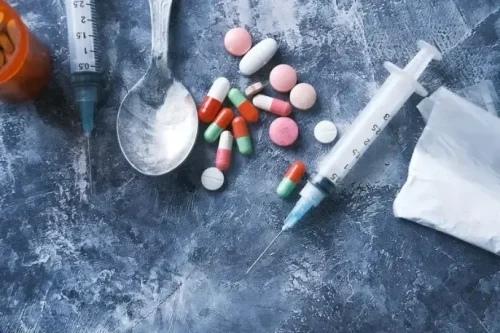
It’s worth noting that alcohol is not the only substance that affects dopamine levels. For instance, marijuana also impacts dopamine in complex ways, and even non-drug substances like alcoholism symptoms aspartame have been studied for their effects on dopamine. Understanding these various influences on our brain’s reward system can help individuals make informed decisions about substance use and overall health. Moreover, individual differences in personality traits, stress levels, and environmental factors can all influence how alcohol affects dopamine function. For instance, individuals with higher levels of impulsivity or sensation-seeking behaviors may be more sensitive to alcohol’s effects on dopamine, potentially increasing their risk of developing problematic drinking patterns.
Research on the Human Consumption of Caffeine and Alcohol: Laboratory Studies

This is, in part, because alcohol use decreases REM sleep, and recovery increases it. The neurological component of a recovery dream could indicate that the brain is processing your recovery. The brain can use dreams as a stage to play out former experiences and associations with addiction. It does https://ecosoberhouse.com/ this to resolve scenarios and integrate new experiences as sober or moderate with alcohol. When you consider that your brain is now coding alcohol as a threat, practicing avoiding these dreams could be a positive indication that you are healing.
- Chronic alcohol use can disrupt this balance, potentially leading to a range of cognitive and behavioral issues.
- It should also be mentioned that these typical antipsychotic agents might have effects on other receptors including dopamine D1, 5HT2 and alpha1 receptors.
- It is also crucial to acknowledge the individual differences in how alcohol affects dopamine and addiction development.
- The implications of this complex interaction extend far beyond the momentary pleasure of a drink.
Human Metabolism of Caffeine
Although there exists promising preclinical results, the majority of placebo‐controlled randomized clinical trials with traditional dopamine antagonists and agonists have so far have been discouraging. Furthermore, the severe side-effect profiles of many of these compounds may limit their clinical use. Newer dopamine agents, such as partial agonists and dopamine stabilizers, attenuate alcohol‐mediated behaviours in rodents as well as humans.
Can I Go To Residential Treatment For Mental Health?

Dopamine levels stay increased in the absence of this specific neurotransmitter as long as the person consumes alcohol. The euphoria that drinking provides the brain can make it impossible for a person to refrain from consuming alcohol. It’s also why medicines that increase dopamine levels in the brain can be so addicting that people will continue to drink despite the repercussions. Researchers are also investigating whether drugs that normalize dopamine levels in the brain might be effective for reducing alcohol cravings and treating alcoholism. As a result, people with an alcohol addiction may consume even more alcohol in an unconscious effort to boost their dopamine levels and get that spark back. Individuals with low dopamine levels may experience a loss of motor control, such as that seen in patients with Parkinson’s disease.
Dopamine and Alcohol Craving
Dopamine release in the NAc shell may be instrumental in the development of alcohol dependence. Psychological dependence on alcohol develops how much does alcohol increase dopamine because alcohol-related stimuli acquire excessive motivational properties that induce an intense desire to consume alcohol-containing beverages (i.e., craving). As a result of this intense craving, conventional reinforcers (e.g., food, sex, family, job, or hobbies) lose their significance and have only a reduced impact on the drinker’s behavior.

You’ll meet millions of fellow Reframers from around the globe in our 24/7 forum chat and daily Zoom check-in meetings. You’ll also have the opportunity to connect with our licensed Reframe coaches for more personalized guidance. Our recovery programs are based on decades of research to deliver treatment that really works.
- This dynamic neurotransmitter is essential to our overall well-being and mental health, and it’s integral to learning, regulating mood, and making memories.
- By manipulating dopamine release and receptor activity, alcohol can produce pleasurable sensations and reinforce drinking behaviors.
- The release of neurotransmitters allows the brain to control the rest of the body, including everything from telling you when to move a leg to walk, to managing the digestion of your food, to releasing chemicals to help you fall asleep.
- The brain’s depleted state of dopamine means that an ex-drinker may continue to experience obsessive thoughts about alcohol for years after their last drink.
If you do choose to drink, your body’s response to alcohol depends on many factors. These include your age, gender, overall health, body weight, how much you drink, how long you have been drinking and how often you normally drink. In summary, adenosine neurotransmission is a unique mechanistic link between caffeine and alcohol, and provides an explanation for the potentially risky effects when the two substances are combined. Drugs, on the other hand, can cause long-term damage, with dopamine levels and brain cells taking a year or longer to heal.
- We are passionate about sharing the process involved in living a drug and alcohol-free life.
- It’s also common for those with AUD to report sleeping challenges, such as insomnia.
- During chronic alcohol intake, in addition to providing a mechanism for counteracting tolerance to the acute effects, by blocking the effects of upregulated A1 receptors, caffeine provides a “treatment” for the withdrawal effects of alcohol.
- These include your age, gender, overall health, body weight, how much you drink, how long you have been drinking and how often you normally drink.
- When too much dopamine is released, the brain effectively turns off dopamine receptors to regulate the chemical’s flow.
Even two drinks a day can make a difference in brain size, but as always, the more you drink, the worse the effect. So when you’re managing stress or anything to do with your mood, you can be sure that dopamine is involved. It even helps to protect your gastrointestinal lining and works with your immune system – it’s everywhere! That’s why it’s so important to do what you can to stay healthy and make sure your body is making enough of it and using it efficiently. As a neurohormone, it’s also released by the hypothalamus in your brain, where hormones are produced to regulate your basic bodily functions and mood, like heart rate, temperature, sex drive, sleep, and hunger.


